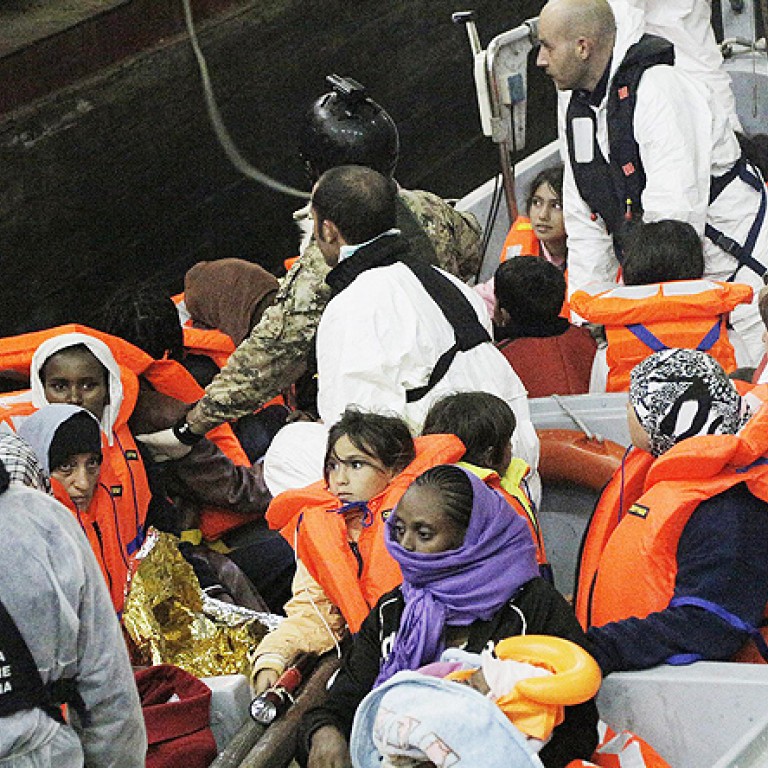
EU divided on how to tackle Mediterranean refugee crisis
Southern nations bearing brunt of arrivals fail to secure action from bloc
European Union leaders yesterday failed to take new action to ease the plight of thousands of boat refugees trying to cross from North Africa, as Italian vessels rescued another 700 migrants while the two-day summit was going on.
The Italian coast guard said it helped five crowded boats in the Mediterranean Sea near Sicily carrying a total of 705 migrants, with all brought to safety except for one migrant who reportedly fell into the sea during rescue operations by a Maltese cargo ship. A search was launched.
About 365 migrants drowned in an October 3 capsizing near the Italian island of Lampedusa.
Following the tragedy, EU officials set up a task force seeking, among others, to improve the system of maritime border patrols. The European Commission also mobilised a few additional funds for Lampedusa, but the latest migrant arrivals underscored that the problem persisted unchanged.
"We had a long discussion on refugee policies following the horrible events in the Mediterranean and on the island of Lampedusa," German Chancellor Angela Merkel said after the Brussels summit. "We all have expressed that we are deeply troubled over the events that we had to witness off Lampedusa."
Italy, Malta, Greece and Spain - the main gateways for refugees from the south - had pushed for the topic to be put on the meeting's agenda in the hopes of achieving better burden-sharing, but the talks yielded neither concessions from northern Europeans nor more funding for EU border patrol agency Frontex. Germany and others pointed out that they already receive significantly more asylum applications per capita than Italy and other southern countries.
Thousands of migrants reach Italy's shores every year, but they often use the country only as a transit point. Germany received about 80,000 asylum applications in 2012, while Italy registered 16,000, according to EU statistics.
Human rights groups condemned the EU's inaction. "Europe's priority clearly is not to save lives or to protect people along the borders,"Amnesty International official Nicolas Beger said. "Instead it is to prevent people from arriving in Europe at all costs, even if those people are in need of safety and protection," he added.
Advocacy groups like Human Rights Watch have urged the EU to increase its sea patrols and guarantee that anyone picked up at sea will be taken to a safe European port.
Some European officials, however, have argued that making boat migration safe will increase the number of refugees risking their life while crossing the Mediterranean.
